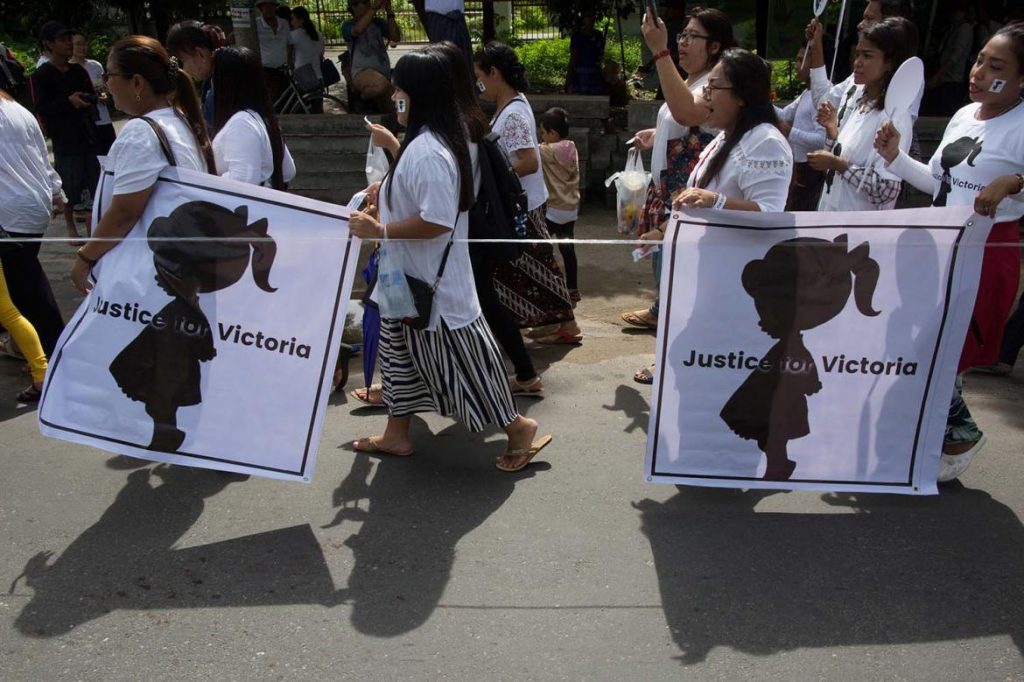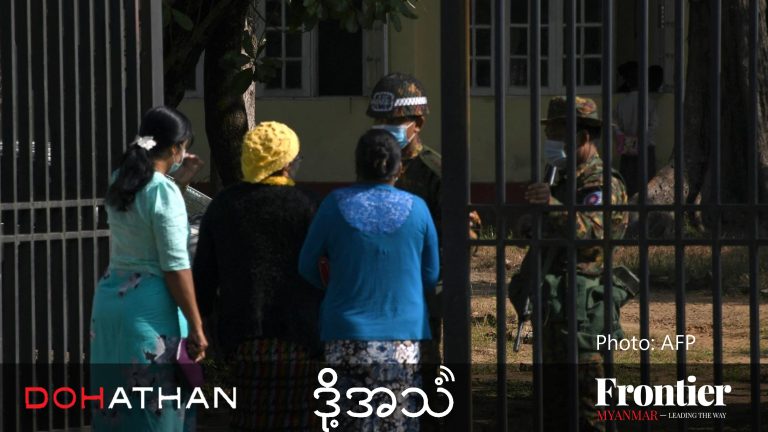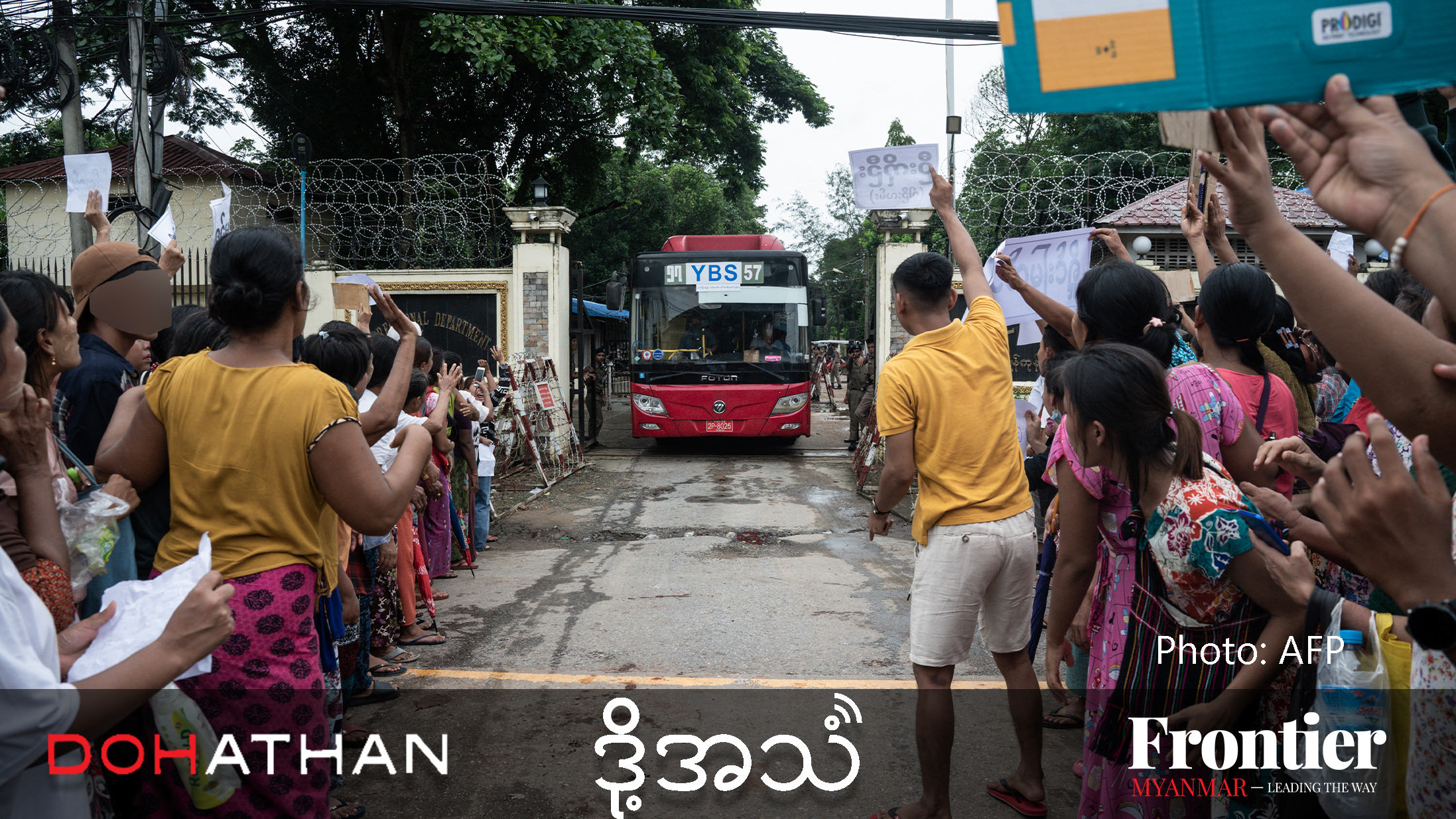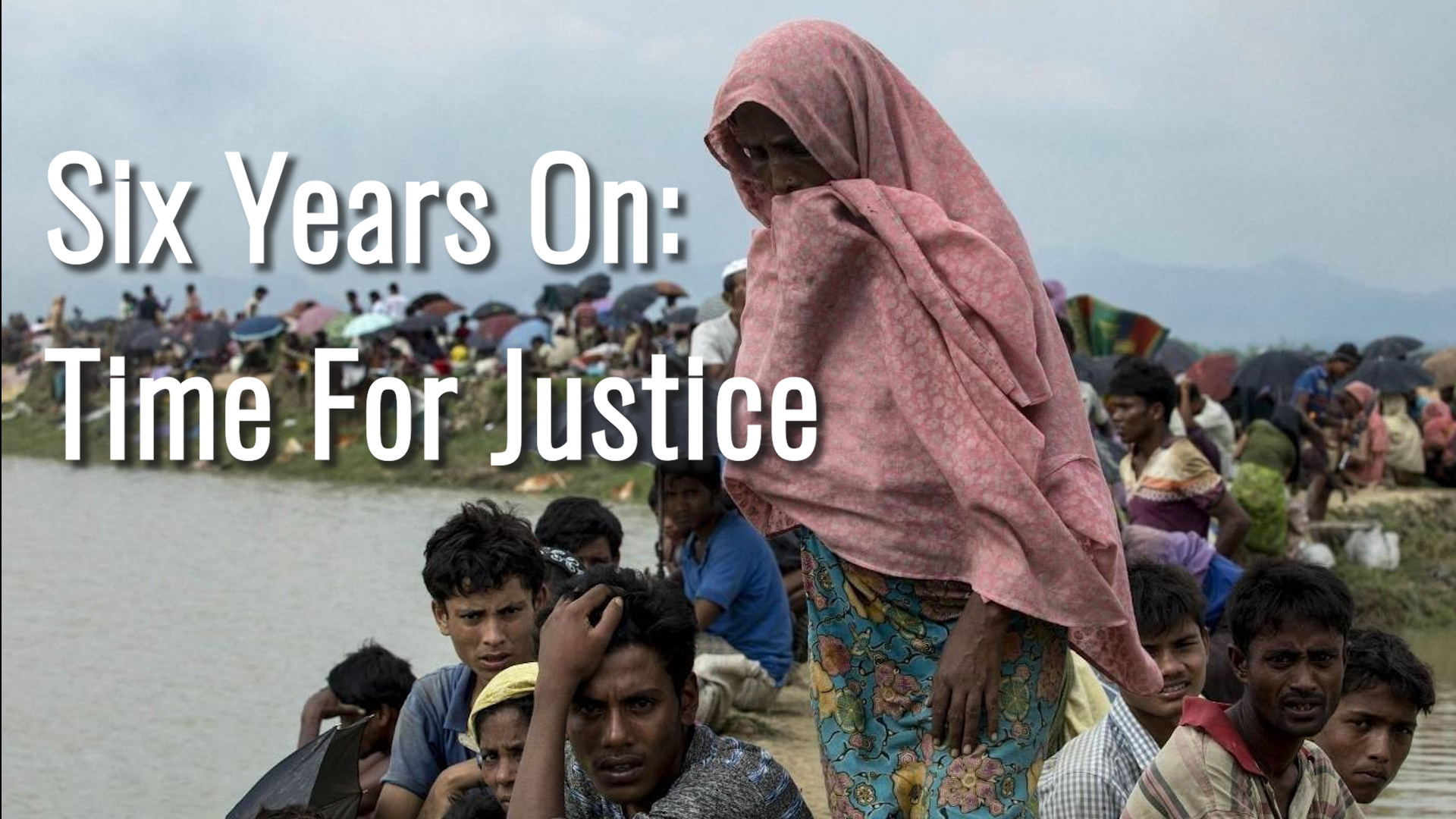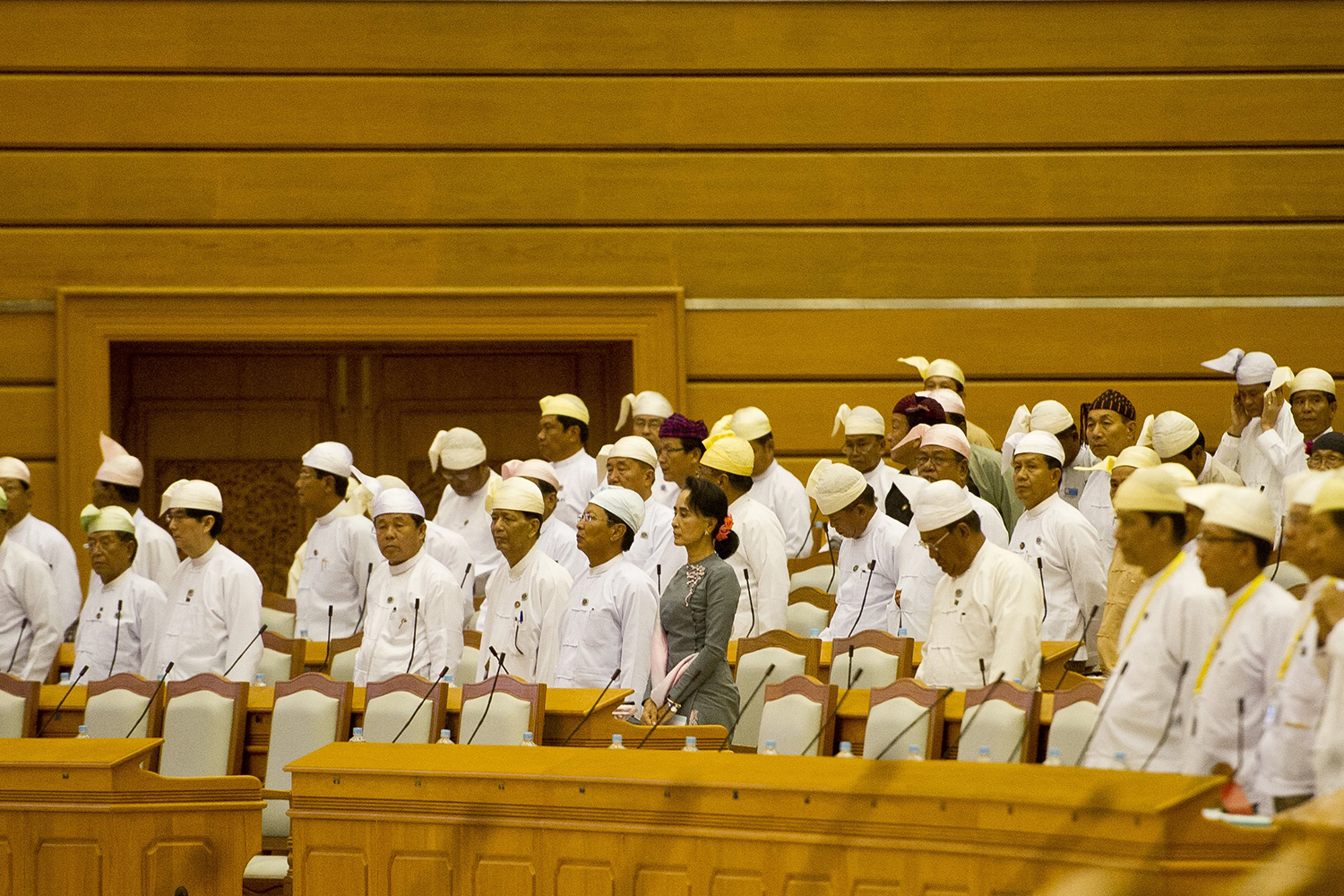The “law officers” who prosecute criminal cases in Myanmar should be important players in determining which cases go to trial, but their role – and the informal pressures they face to either drop or proceed with charges – receive little public scrutiny.
By YE MON | FRONTIER
IT IS not widely known that prosecutors in criminal cases, known as “law officers”, are not under the Tatmadaw, who control the police, but answer ultimately to the president. As frontline staff of the Office of the Union Attorney General, they are – on paper, at least – the main players in identifying and recommending cases that are brought before a court. But their role is seldom mentioned in discussions of the criminal justice system and its failings, which the civilian government often claims to have little influence over.
The 2008 Constitution gives the president the power to appoint a cabinet-level attorney general for a five-year term whose role is to provide legal advice, assign duties on legal matters – such as the scrutiny of proposed laws – and report back to the president. Under the attorney general are the deputy attorney general, the regional and state advocates general, and the law officers, who serve at courts.
The advocates general appointed by state and regional chief ministers have similar powers to that of the attorney general. The “gatekeeper” role of the law officer is specified under an order issued by the attorney general in 2016. After conducting their investigation, the police transfer the evidence – primarily the First Information Report and witness statements – to the relevant law office. A law officer reviews the evidence and if they decide the evidence is strong enough to present in court, they transfer it to the relevant court. Alternatively, they can send it back to the police recommending either they investigate further or close the case completely.
In September 2018, the Anti-Corruption Commission brought charges against Yangon Region Advocate General U Han Htoo and five other officials, including a judge, over allegations that they had accepted more than K70 million in cash and kind to withdraw charges against three suspects in the alleged murder of Facebook comedian Aung Yell Htwe. The case continues at the Yangon Region High Court. The charges under the Anti-Corruption Law carry maximum prison sentences of between 10 and 15 years.
Support more independent journalism like this. Sign up to be a Frontier member.
Lawyer Daw Zar Li Aye told Frontier on September 12 that a consequence of the case against Han Htoo was that the office of the Yangon Region advocate general was reluctant to approve the withdrawal of cases, even when the evidence was found to be weak. She cited a child rape case in Dala Township in 2017 brought by the family of a girl aged 13, who later told the Yangon Southern District Court that she had made up her story about being sexually assaulted because she wanted to marry the accused, a teacher.
Zar Li Aye said the police did not present any supporting evidence in the case and after the girl’s family decided to withdraw the criminal complaint, the township law officer recommended that the case be dropped. However, the recommendation was rejected by the advocate general and in July this year the Southern District Court convicted the teacher of rape and sentenced him to 20 years’ imprisonment.
One of the most infamous child rape allegations in recent times involves a girl, dubbed “Victoria” by the public, who was aged two years and 11 months when she was alleged to have been sexually assaulted at a private nursery school in Nay Pyi Taw on May 16.
Lawyer U Khin Maung Zaw, who is acting for the defendant Ko Aung Kyaw Myo, aka Aung Gyi – a driver at the school whom many think is being framed – told Frontier on September 12 that there was a lack of evidence against his client. Police had arrested and released Aung Gyi without charge in June because they failed to find evidence linking him to the crime, before re-arresting and charging him in early July.
Khin Maung Zaw said law officers should have raised objections over the failure of a First Information Report prepared by the police and a statement by the investigating officer to include an interview with the girl.
Former police captain U Moe Yan Naing, who was sacked from the Myanmar Police Force and sentenced to one year’s imprisonment after testifying that Reuters reporters Ko Wa Lone and Ko Kyaw Soe Oo were victims of a police set-up, told Frontier that the girl and her parents should have been interviewed by police before charges were brought against Aung Gyi. He also said that the law officers should have noticed the failure of the police to do so and refused the police report.
Moe Yan Naing said police needed to gather solid evidence in rape cases, but that law officers also needed to ensure that police conduct proper investigations. “In the Victoria case, both [police and law officers] will need to take responsibility if Aung Gyi is exonerated,” he said.
At a hearing in the case at Nay Pyi Taw’s Dekkhina District Court on September 11, the girl, who gave evidence via a video feed, was shown images of Aung Gyi and four others. Asked who had assaulted her, she pointed to the images of two teenaged boys, who are the sons of a supervisor at the nursery school, and said she did not recognise Aung Gyi.
Hearings continue in the Victoria case, but it has already highlighted the importance of law officers performing their roles conscientiously, whether as prosecutors or less commonly as defence attorneys in cases where defendants cannot afford lawyers – as was the case with U Kyi Lin, who was convicted in February this year for the killing of National League for Democracy lawyer U Ko Ni in January 2017.
Even in cognisable, or serious, offences, the police are required to send a case file to law officers for scrutiny, before a decision is made on whether or not to bring charges.
U Tun Myint, a retiree who worked as a law officer for 20 years, told Frontier that police were obliged to follow guidance from law officers on how to gather evidence to build a strong case. “The police send the case file for an opinion from law officers, so they need to follow their advice,” he said. However, Tun Myint said police often disregarded this advice and law officers should not be blamed for shoddy investigations.
Despite the gate-keeping role that official criminal procedure assigns to law officers, Moe Yan Naing maintained that police could compel them to pursue cases if they have “enough evidence”, and said he had done so several times in his police career. “Sometimes, law officers complain to police stations when their advice is not followed, but in my case no action was ever taken because I always had a good reason [for ignoring the advice],” he said.
A defence attorney and member of the Myanmar Lawyers’ Network, U Kyi Myint, told Frontier that government law officers rarely act according to human rights.
“If law officers and courts respected human rights, the people charged under 66(d) and 505(a) would never have been sent to jail,” he said, referring to cases under section 66(d) of the 2013 Telecommunications Law, which criminalises online defamation, and section 505(a) of the colonial era Penal Code, which concerns the incitement of armed servicemen to mutiny but is treated as a broad defamation clause.
Tun Myint rejected the criticism, saying that law officers often show compassion towards defendants in such cases by requesting that the judge impose more lenient sentences. However, he admitted that this often followed some kind of inducement.
“Law officers who are given presents or money by defendants’ families will arrange for the truth not to come out during hearings, so that the court does not impose heavy penalties,” he said, adding that they were also sometimes threatened by these families.
Tun Myint also claimed that law officers had no choice but to prosecute cases under 66(d) of the Telecommunications Law because these cases require the prior approval of the Ministry of Transport and Communications – though it is unclear to Frontier why this compels the attorney general’s office and its law officers to pursue all such cases, rather than just being a precondition for doing so.
Zar Li Aye said the ministry played a key role in verifying the identities of people behind online speech that is allegedly defamatory. She agreed with Tun Myint that it is “not possible” for law officers to reject a case that the ministry has verified and approved.
Beyond failing to appreciate these purported constraints, Tun Myint said the public also often pre-judged cases without first understating the law or hearing the evidence.
“How can they say the U Min Htin Ko Ko Gyi case was unfair?” he said, referring to the 57-year-old filmmaker sentenced by Yangon’s Insein Township Court on August 29 to one year in prison under section 505(a) of the Penal Code over Facebook posts that criticised the Tatmadaw. Tun Myint said that critics did not know what was in the police statement submitted to law officers, so were not in a position to judge.
“The law officers are always following the law,” he said.


